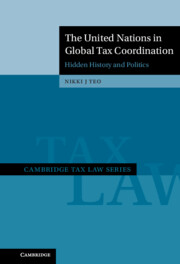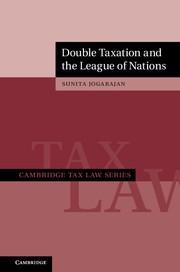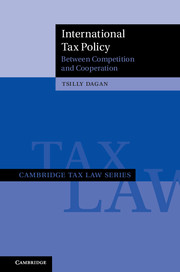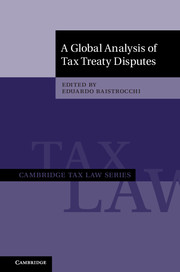The United Nations in Global Tax Coordination
The United Nations in Global Tax Coordination fills the decade-long knowledge gap in international tax history concerning the UN Fiscal Commission, which functioned as the overarching fiscal authority during the early post-World War II economic order. With insights from political economy and international relations scholarship, this critical archival examination chronicles the tenacious activism by post-colonial developing countries to preserve source taxation rights, and by the UN Secretariat in championing the development of equitable tax rules. Such activism would ultimately lead developed countries to oust the UN as a forum for international tax norm setting. The book includes a revealing prehistory of the wartime work of the League of Nations that questions the legitimacy of the Mexico Model, the first model tax convention between developed and developing countries. This expertly researched work is essential reading for understanding the roles of politics, states, secretariats and private actors in directing global tax coordination.
- Provides the first in-depth study of international tax coordination covering developing countries' induction into double taxation questions under the League of Nations and young United Nations
- Revises prevailing understandings of international tax history
- Offers guidance to evaluating current initiatives and proposals underway to overhaul the international tax framework
Awards
Short-listed, 2024 Frans Vanistendael Award for International Tax Law, International Bureau of Fiscal Documentation
Reviews & endorsements
‘Recent developments at the United Nations will no doubt spark intense interest and research into the work of the UN Group of Experts. Teo’s book provides an exemplar of how this research can be done and the importance of going beyond the minutes of meetings and official reports and publications. The strength of Teo’s book lies in her painstaking coverage of the relevant political circumstances and related developments which enable a complete understanding of the Fiscal Commission’s work during the relevant period. While the movement to shift the development of global tax standards from the OECD to the UN presents an obvious relevance to Teo’s book, the book will be of interest also to scholars of international tax history, international governance, and international organisations.’ Sunita Jogarajan, British Tax Review
Product details
March 2023Hardback
9781009180467
380 pages
235 × 151 × 29 mm
0.9kg
Available
Table of Contents
- 1. Introduction
- 2. Prelude to global tax coordination: the league's Princeton mission in the Americas
- 3. Creation of the fiscal commission (1943– 1946)
- 4. Pax Americana, cold war and decolonisation: impact on the UN institutional machinery for fiscal activities and postwar international financial flows
- 5. First session of the fiscal commission and aftermath (1947)
- 6. Related intervening developments (September 1947– November 1948)
- 7. Second session of the fiscal commission and aftermath (1949)
- 8. Related intervening developments (January 1949– April 1951)
- 9. Third session of the fiscal commission and aftermath (1951)
- 10. Related intervening developments (May 1951– April 1953)
- 11. The taxation of international air transport and contending with ICAO (1947– 1951)
- 12. Fourth session of the fiscal commission and aftermath (1953)
- 13. Dissolution of the fiscal commission and subsequent developments
- 14. Conclusion.






